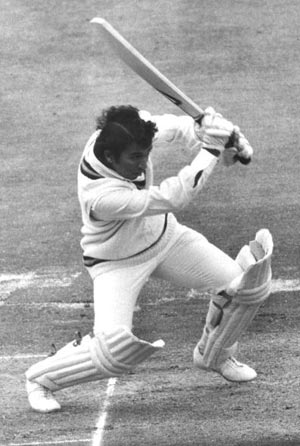As the 1970s began, India’s cricket was on the rise under the astute captaincy of the Nawab of Pataudi Jnr. In 1968, they had won their first away series, beating New Zealand, 3-1. In 1968-69, they lost 3-1, in a thrilling series to Bill Lawry’s Australians and then held New Zealand to a 1-1 draw. ‘Tiger’ Pataudi believed in playing to the team’s strengths, thus, against convention, he would routinely select a trio of spinners from the fabled quartet of Erapalli Prasanna, Srinivas Venkataraghavan, Bhagwat Chandrasekhar and Bishen Singh Bedi. He supported them with the best cordon of close-in fielders India has ever had: Eknath Solkar, Ajit Wadekar, Venkat and Syed Abid Ali. ‘Tiger’, India’s best, patrolled the covers. The Nawab moulded the Indian team, from a factionalised dressing-room into a complete unit, no longer trying to avoid defeat, but competing to win. “He brought an Indian-ness to the team,” recalled Bedi.
When the Indian selectors sat down to pick the team for the 1971 tour of the Caribbean, little did they know that they were about to create history against their nemesis. Dating back to 1948, in five series, West Indies had won 12 Tests, with the other 11 drawn. India had never led on first innings, even once.
Vijay Merchant, the chairman of selectors, would cast the deciding vote that appointed Wadekar the captain for the tour. Years later, Wadekar would recount his displeasure with the team’s composition. There were no fast bowlers, no place for the

